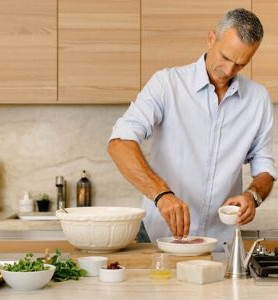The truth about bread; we sit down with Bread & Butter owner
Growing up in Berlin, Isabel Pasch of Bread & Butter is no stranger to a cake. “I came from a cake family...every Saturday when I was little we would go to my grandmothers and all the women in the family would bring a cake,”, she says. “This was in the seventies, you know, so everyone is smoking and the whole room was filled with smoke, and everyone would drink filter coffee by the litre and eat 3-4 pieces of cake, that was just normal then.” Fast forward to today, Isabel has been living in New Zealand for twenty years and is the proud owner of successful bakery brand Bread & Butter which has two eateries in Ponsonby and Grey Lynn as well as supplying wholesale delicacies. Despite the passing time, Pasch still admits she struggles to get through a day without some form of pastry or cake, and we sat down with the cake connoisseur to discuss what makes the Bread & Butter brand so unique.
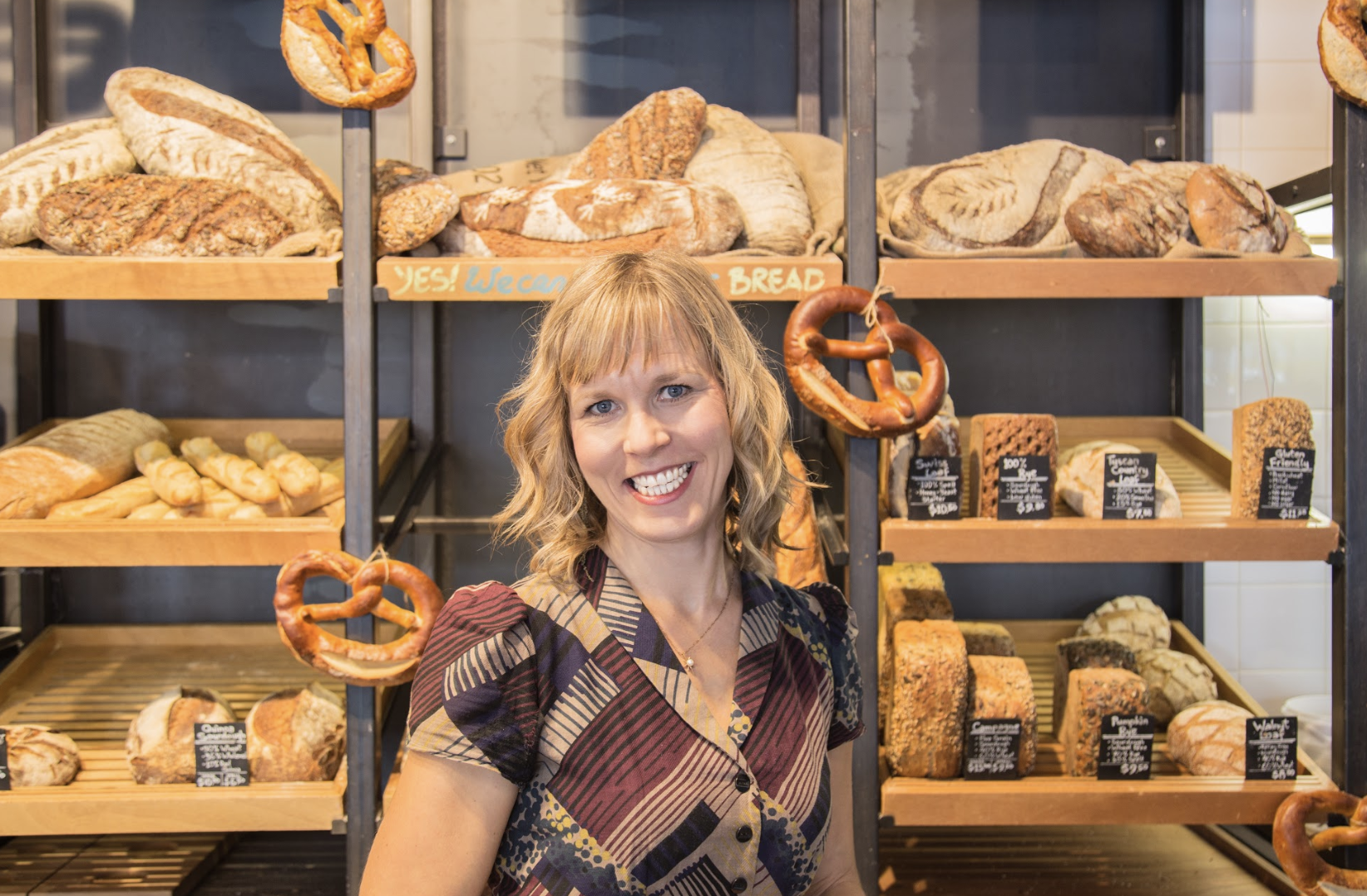
Bread is one of the oldest foods, and one that has been integral to the evolution of the human species. But now supposedly it’s bad for you. What has changed and where do you think this misconception stems from?
Right, bread has been eaten for literally thousands of years and for the most part of it, humans got the majority of their daily calories from cereals, which means at least for the Eurasian parts of the world bread. But all grains were grown ‘organic’ because until the middle of the 20th-century chemical fertilisers, pesticides and herbicides hadn’t been invented. The way to make bread was by slowly fermenting it with a sourdough culture. Sourdough is a mix of wild yeasts and bacteria and it takes anything between 12 - 48 hours to fully ferment a loaf of bread.
What has changed is that after the second world war, food production became really industrialised. While this has made food a lot cheaper, it also means that the quality of food has gone down. Most foods that are mass produced rely on chemicals to be able to produce them on huge machinery, to give them extra long shelf life or make them look like or taste like something they are not. Bread is one of those victims of industrialisation of food production. Modern supermarket bread is far removed from its roots. Calling it bread is like calling Fanta freshly squeezed orange juice.
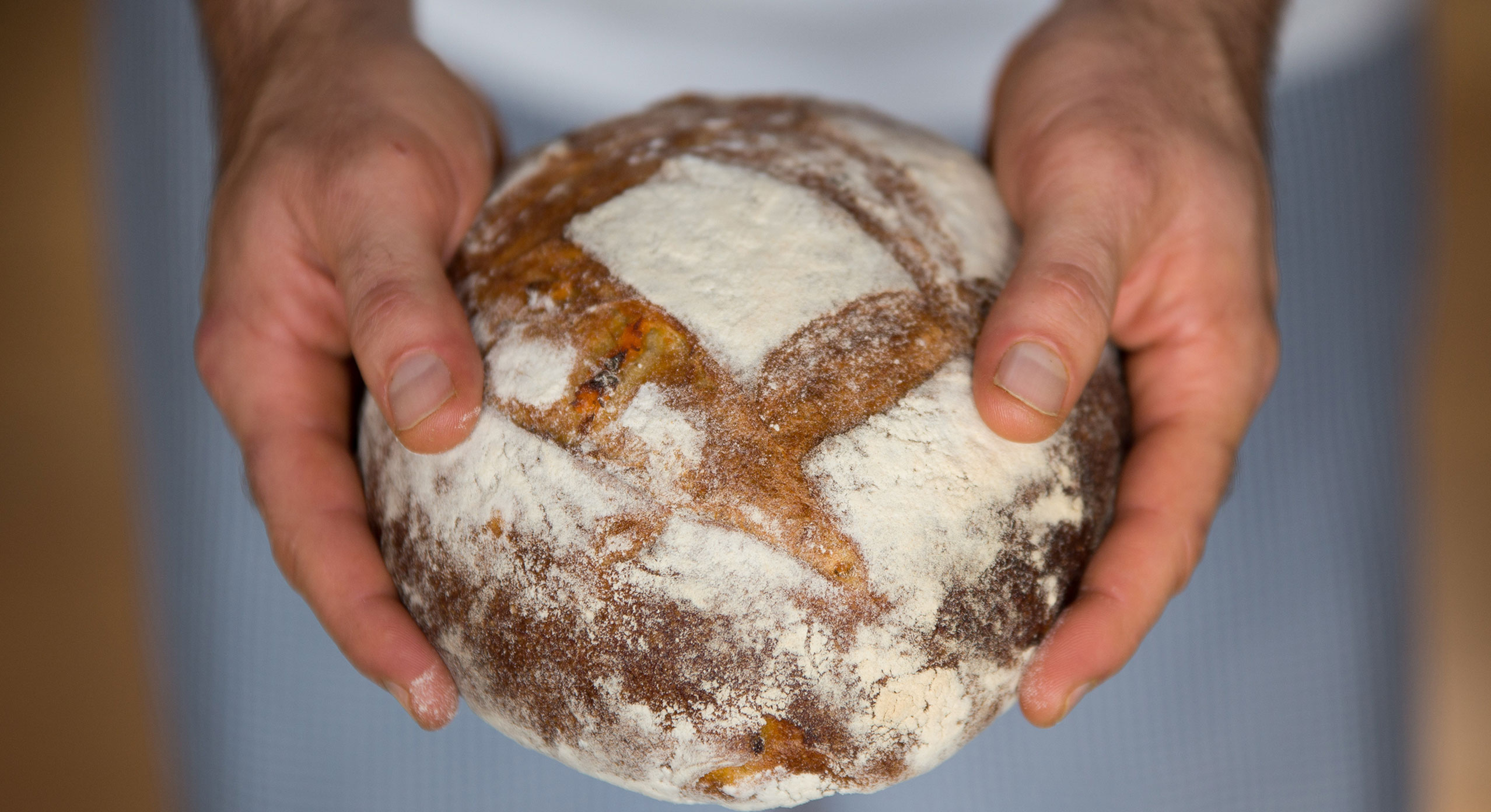
The use of chemicals in agriculture and food is in my mind the main culprit for all these food-related health issues and digestive disorders. What is your stance on the integration of chemicals to food?
Chemicals made from oil, which includes most food additives, have no place in food. We have animal bodies and we have not evolved to eat oil. Our guts, our microbes in our guts, and our immune system cannot deal with all these chemicals. There is more and more evidence coming out of scientific studies that shows that lifetime exposure to chemicals through food changes the microbiome - the community of microbes in our gut - that we rely on for our health. People, who suffer from intestinal disorders like Irritable Bowel Syndrome, Ulcerative Cholitis, Crohns Disease, Coeliacs Disease and other digestive disorders have been shown to have an altered microbiome, which indicates that the microbes play a huge role in our health. However, the chemicals we spray on our crops, we feed our lifestock, and we feed ourselves have by and large never been tested for their effects on the gut microbes. Many of them - preservatives are even added specifically to reduce the growth of microbes and funghi. It is therefore not surprising that constantly eating foods that contain copious amounts of many different chemicals destroys our gut microbiome and with it our health.
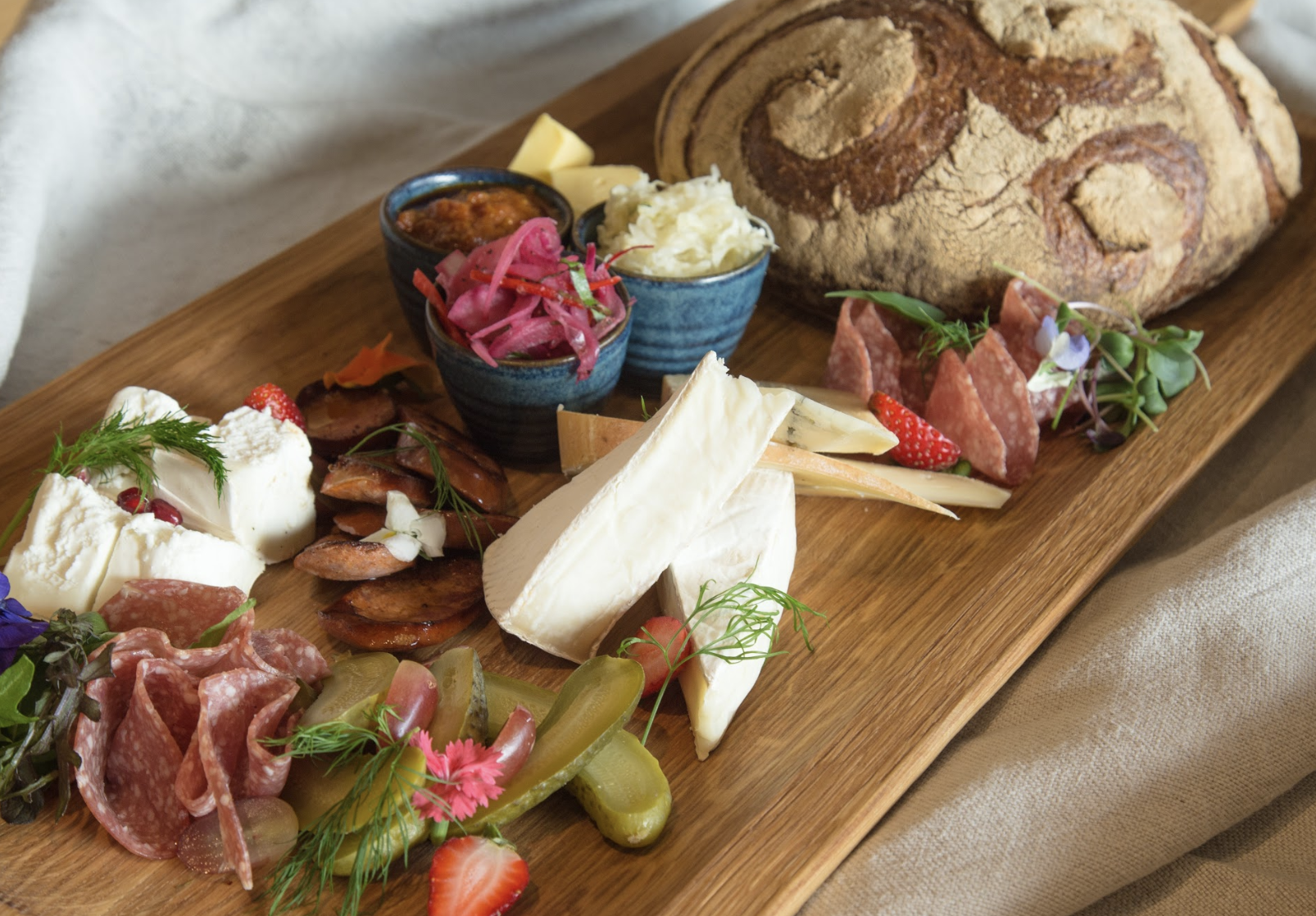
Food has the opportunity to really transform the planet since agriculture plays a huge role in climate change. As a food supplier, what is your commitment to reducing your carbon footprint and what steps do you take to ensure you adhere to it?
We try to use organic ingredients where we can. For our bread we are very strict and all ingredients in the bread are organic. When we cannot use organic ingredients, we try and source ingredients locally and sometimes for other ingredients we actually opt for local over organic, as it sometimes doesn’t make sense to import small amounts of speciality ingredients organic, when they are available from local growers.
Our courier company that delivers our bread offsets their carbon footprint through a tree planting programme and we try and reduce waste through donating leftover food, composting and recycling. Soon we will be part of a new foodwaste minimisation app, that will allow consumers to purchase leftover food at a 50% discount. Watch this space.
‘Organic’ is a word that gets thrown around a lot. What do you believe makes food truly organic?
That is true, there are a lot of big food companies muscling into the organic market, because it is the biggest growing segment of the food market and they don’t really buy into the organic philosophy. Truly organic means produced in a way that does not harm the environment (so no chemicals sprays, no unwarranted excessive use of antibiotics etc), that encourages biodiversity, that respects the wellbeing of animals, that treats people growing the food fairly, and that does not harm the health of the person consuming the food. The foodsource should always be traceable and there shouldn’t be any hidden additives.
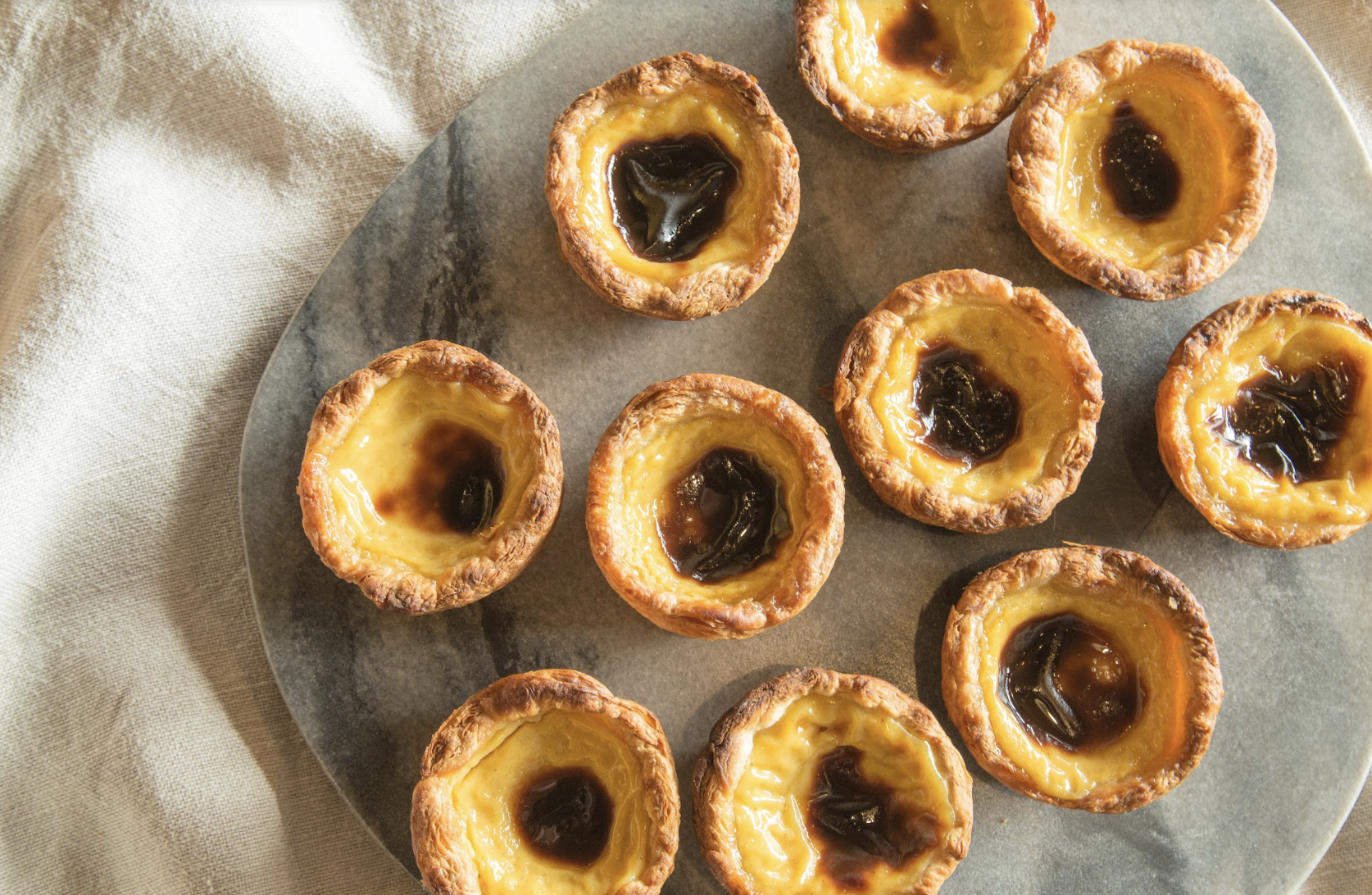
Food waste is another huge problem, I read somewhere that 1/3 of all food grown is never consumed. What do you do to try and combat this?
As mentioned above, we already give leftover food to charities, food that is not fit for human consumption anymore is partly donated to feed the cows at Kelmarna Organic Gardens, and what they cannot take, we compost. We are also going to be part of a new food waste minimisation app that aims to give consumers the option to buy food at reduced price at the end of the day.
But we also try and use leftovers in a more productive way as all these measures above are basically still working at a loss. So we try and do, what our grandmothers used to do. For example we have several dishes on our menu that use bread. We also toast bread and feed it back into the dough as bread crumbs. It significantly enhances the complexity of the flavour of the bread.
Bread & Butter is known for creating some pretty delectable cabinet treats. What’s your personal favourite and what would be your one suggestion to a savoury tooth and a sweet tooth?
I have a real sweet tooth. 3 o’clock in the afternoon, I need a coffee and something sweet to keep me going. My long term favourite that I just don’t seem to be able to get over are the lemon madeleines. When there’s one leftover at the end of the day, my staff often bring it to me. However, my real favourites are the Portuguese Tarts. Sadly - or maybe luckily - there are hardly ever any leftover.
The spicy lamb and carrot sausage rolls with our house kasundi are a great lunch, with a small side salad, they are hard to beat.
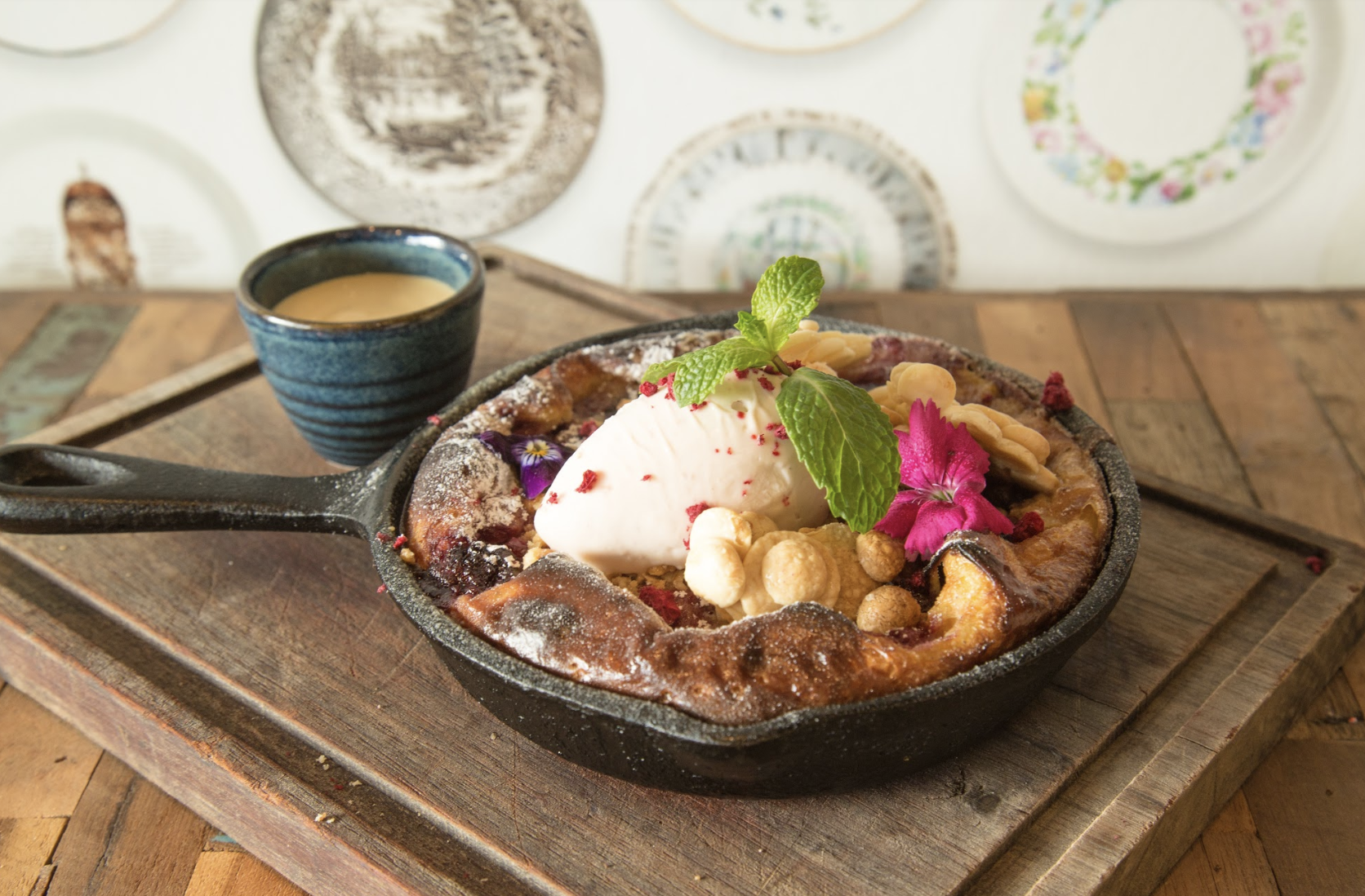
What do you think Bread & Butter offers Ponsonby that it doesn’t already have?
We offer a wide range of organic sourdough bread, handmade pastries and great sandwiches. And while we are not a health outfit that offers any kind of particular diet or lifestyle trend, you can be sure that all our bread is healthy and nothing contains any hidden chemicals.
Let’s talk menu, where did the inspiration behind it come from? Do you stick to a particular ‘style’ of food?
We are first and foremost a bakery and therefore some of the dishes showcase our great sourdough bread. There’s an avocado breakfast salad with sourdough croutons, we have a savoury Bread&Butter pudding as the base for our Eggs Benedict and Clafoutis is a great blend of bakery and cafe. A cake in a pan! We try and offer a range of dishes to suit all sorts of different people. A lot of families come to our cafes, which means we have to have something for mum, dad, the kids and the grandparents. But we also offer a selection of plant-based, vegetarian dishes and healthy options like salads and great sandwiches.
Where’s your favourite place to eat (that isn’t your own!)?
Cazador in Mt. Eden.





